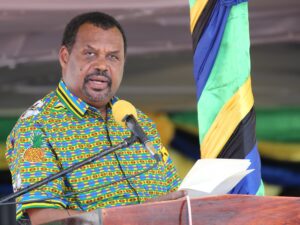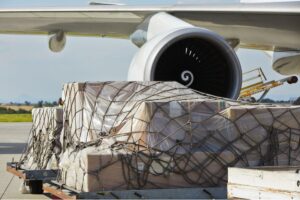The Africa Investment Forum has a strong track record of supporting the success of women business owners and entrepreneurs. Less well-known is that the Africa Investment Forum, an initiative of the African Development Bank and seven partners, also works to channel investment to sectors offering women better access to higher skilled and better paying employment.
As African countries mount robust climate action responses by ramping up adaptation and tapping sustainable energy resources, a surge of green jobs is expected. A significant proportion of these will be in the energy, transport, construction, and agriculture sectors, all priority areas of the Africa Investment Forum’s 2022 Market Days, which will open from 2-4 November in Abidjan, Cote d’Ivoire.
Expanding opportunities for women to fill these jobs is a win-win situation. First, it has the potential to reduce persistent gender gaps in the African labor market. Green jobs are also projected to promote sustainable economic growth that can lift women and their families out of poverty.
There are additional reasons why women and green jobs are a natural complement. According to ILO, “women, with their unique knowledge and capabilities of natural resource management and use of energy sources are strong change agents and key contributors to climate change mitigation and adaptation programmes at local, regional and international levels.”
Echoing this, Vanessa Ushie, Acting Director of the African Development Bank’s African Natural Resources Centre said, “Women play a vital role in managing Africa’s natural capital assets and building climate resilience in our local communities.”
Ushie was speaking following the launch of the Green Jobs for Women in Africa report in 2021. That report acknowledged obstacles to overcome to position women for higher-paying and more secure green jobs. Too often African women are shut out of formal sector employment owing to social norms and limited educational opportunities.
The report urges countries to adopt strong enabling policies and programmes to increase women’s access. The Africa Investment Forum has a role to play in this sphere as well. In addition to channeling investment to the transformational sectors mentioned above, the platform works with governments to put in place regulatory reforms and to build institutions that provide oversight and set incentives on labor and other relevant issues.
Market Days 2022 is themed Building Economic Resilience Through Sustainable Investments, acknowledgement of the need for transformative projects to reduce Africa’s vulnerability to shocks like the Covid-19 pandemic, the war in Ukraine and of course climate change.
The event will showcase billions of dollars of deals to investors and promote sectors where Africa has a comparative advantage, such as creative industries, music, film, textiles, and sports.
Since its inception in 2018, the Africa Investment Forum platform has mobilized investment interests in excess of $100 billion.
The platform is an initiative of the African Development Bank and seven other development institutions: Africa 50; the Africa Finance Corporation; the African Export-Import Bank; the Development Bank of Southern Africa; the Trade and Development Bank; the European Investment Bank; and the Islamic Development Bank.
Source: afdb.org
Share this news
This Year’s Most Read News Stories

Tanzania Confirms Second Marburg Outbreak After WHO Chief Visit
Dar es Salaam — Tanzania’s President Samia Suluhu Hassan has declared an outbreak of Marburg virus, confirming a single case in the northwestern region of Kagera after a meeting with WHO director-general Tedros Adhanom Ghebreyesus.
The confirmation follows days of speculation about a possible outbreak in the region, after the WHO reported a number of deaths suspected to be linked to the highly infectious disease.
While Tanzania’s Ministry of Health declared last week that all suspected cases had tested negative for Marburg, the WHO called for additional testing at international reference laboratories.
“We never know when an outbreak might occur in a neighbouring nation. So we ensure infection prevention control assessments at every point of care as routine as a morning greeting at our workplaces.”Amelia Clemence, public health researcher
Subsequent laboratory tests conducted at Kagera’s Kabaile Mobile Laboratory and confirmed in Dar es Salaam identified one positive case, while 25 other suspected cases tested negative, the president told a press conference in Dodoma, in the east of the country today (Monday).
“The epicentre has now shifted to Biharamulo district of Kagera,” she told the press conference, distinguishing this outbreak from the previous one centred in Bukoba district.
Tedros said the WHO would release US$3 million from its emergencies contingency fund to support efforts to contain the outbreak.
Health authorities stepped up surveillance and deployed emergency response teams after the WHO raised the alarm about nine suspected cases in the region, including eight deaths.
The suspected cases displayed symptoms consistent with Marburg infection, including headache, high fever, diarrhoea, and haemorrhagic complications, according to the WHO’s alert to member countries on 14 January. The organisation noted a case fatality rate of 89 per cent among the suspected cases.
“We appreciate the swift attention accorded by the WHO,” Hassan said.
She said her administration immediately investigated the WHO’s alert.
“The government took several measures, including the investigation of suspected individuals and the deployment of emergency response teams,” she added.
Cross-border transmission
The emergence of this case in a region that experienced Tanzania’s first-ever Marburg outbreak in March 2023 has raised concerns about cross-border transmission, particularly following Rwanda’s recent outbreak that infected 66 people and killed 15 before being declared over in December 2024.
The situation is particularly critical given Kagera’s position as a transport hub connecting four East African nations.
Amelia Clemence, a public health researcher working in the region, says constant vigilance is required.
“We never know when an outbreak might occur in a neighbouring nation. So we ensure infection prevention control assessments at every point of care as routine as a morning greeting at our workplaces.”
The Kagera region’s ecosystem, home to fruit bats that serve as natural reservoirs for the Marburg virus, adds another layer of complexity to disease surveillance efforts.
The virus, closely related to Ebola, spreads through contact with bodily fluids and can cause severe haemorrhagic fever.
Transparency urged
Elizabeth Sanga, shadow minister of health for Tanzania’s ACT Wazalendo opposition party, says greater transparency would help guide public health measures.

Sign up for free AllAfrica Newsletters
Get the latest in African news delivered straight to your inbox
“This could have helped to guide those who are traveling to the affected region to be more vigilant and prevent the risk of further spread,” she said.
WHO regional director for Africa Matshidiso Moeti says early notification of investigation outcomes is important.
“We stand ready to support the government in its efforts to investigate and ensure that measures are in place for an effective and rapid response,” she said, noting that existing national capacities built from previous health emergencies could be quickly mobilised.
The situation coincides with leadership changes in Tanzania’s Ministry of Health, with both the chief medical officer and permanent secretary being replaced.
This piece was produced by SciDev.Net’s Sub-Saharan Africa English desk.
Source: allafrica.com

ZSSF money not for projects, says Ali Karume
Unguja. Veteran politician and diplomat Ali Karume has called on authorities of the Zanzibar Revolutionary Government (SMZ) to refrain from using the Zanzibar Social Security Fund money for establishing commercial projects.Continue Reading

Zanzibar airport monopoly puts 600 jobs at risk
On September 14, 2022, the director general of ZAA issued a directive that gave Dnata Zanzibar Aviation Services Limited an exclusive access to the newly constructed Terminal III, barring other operators.Continue Reading











